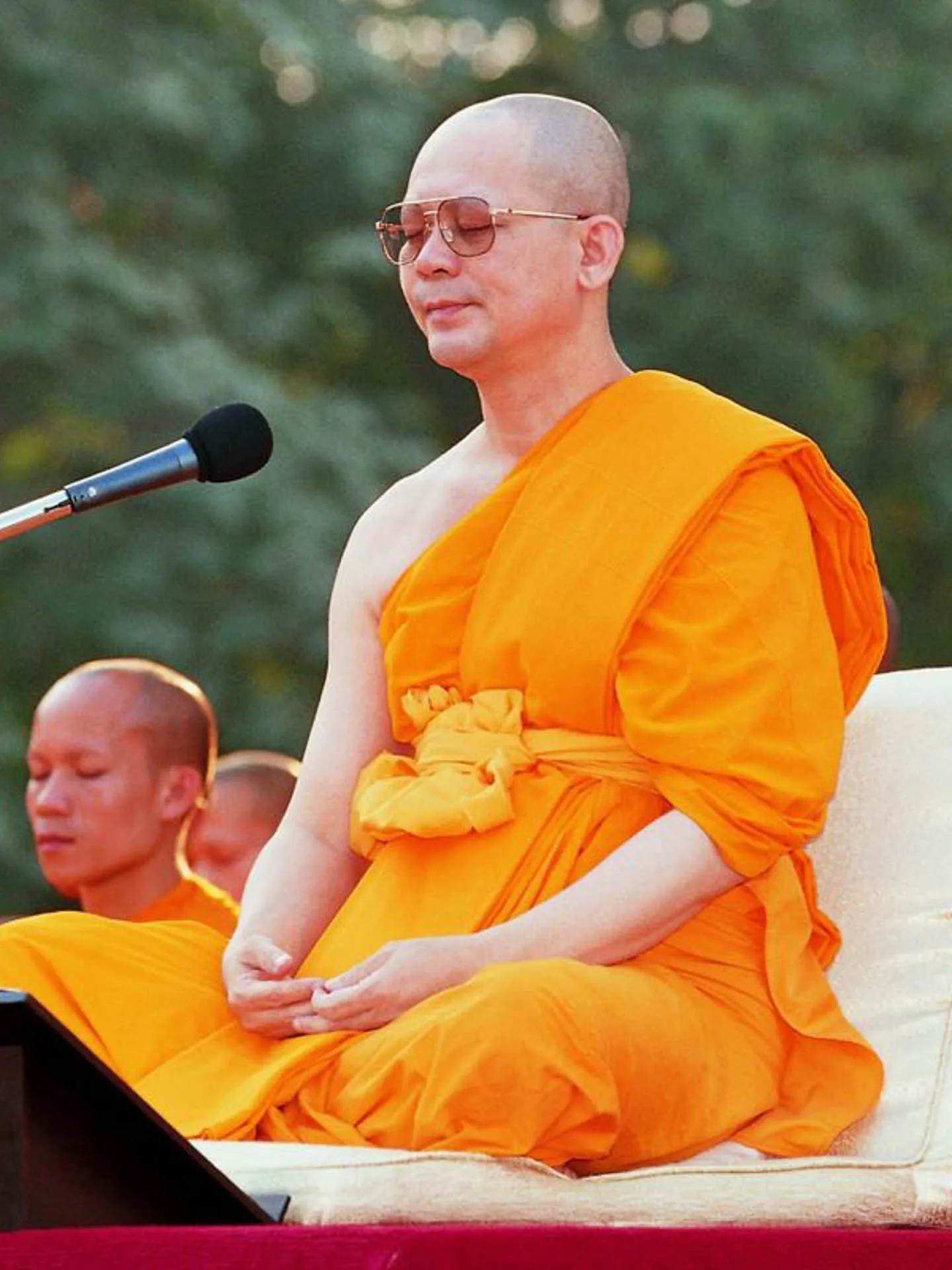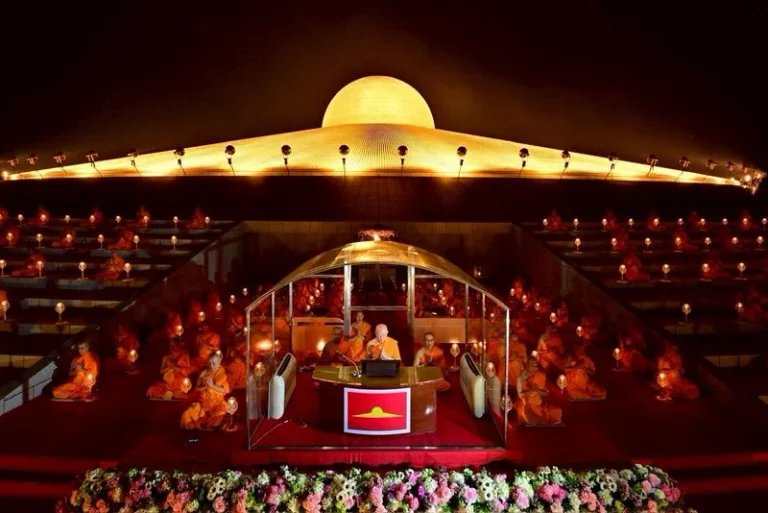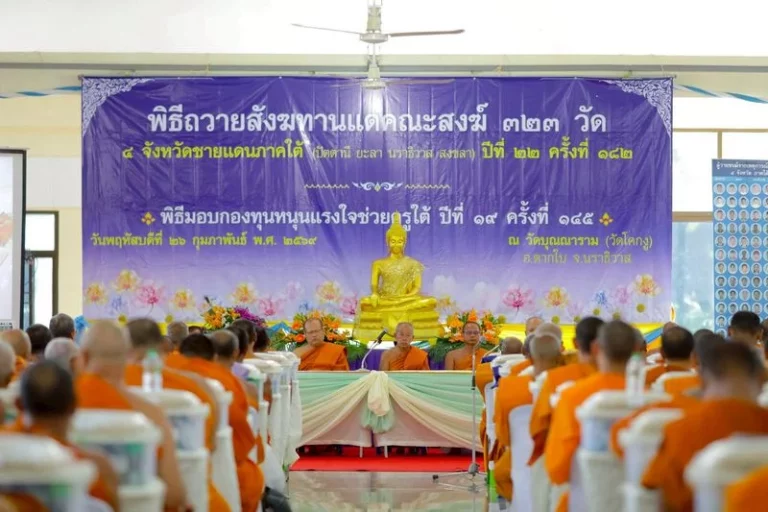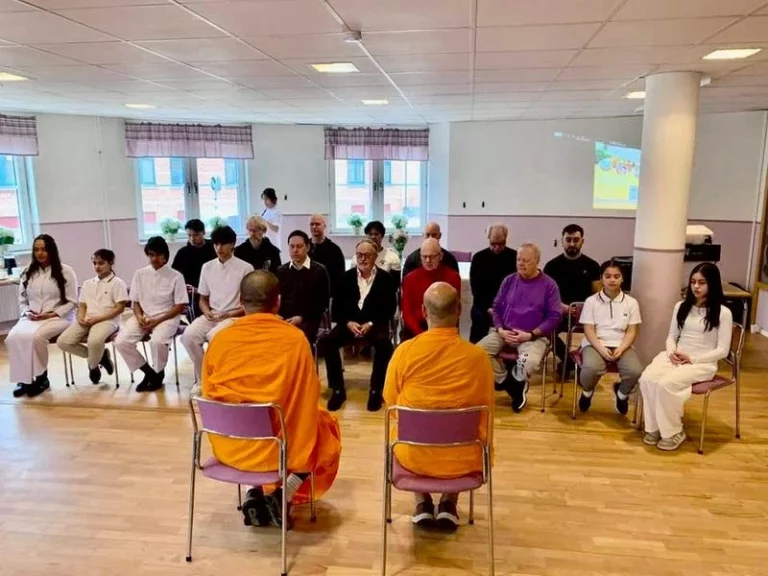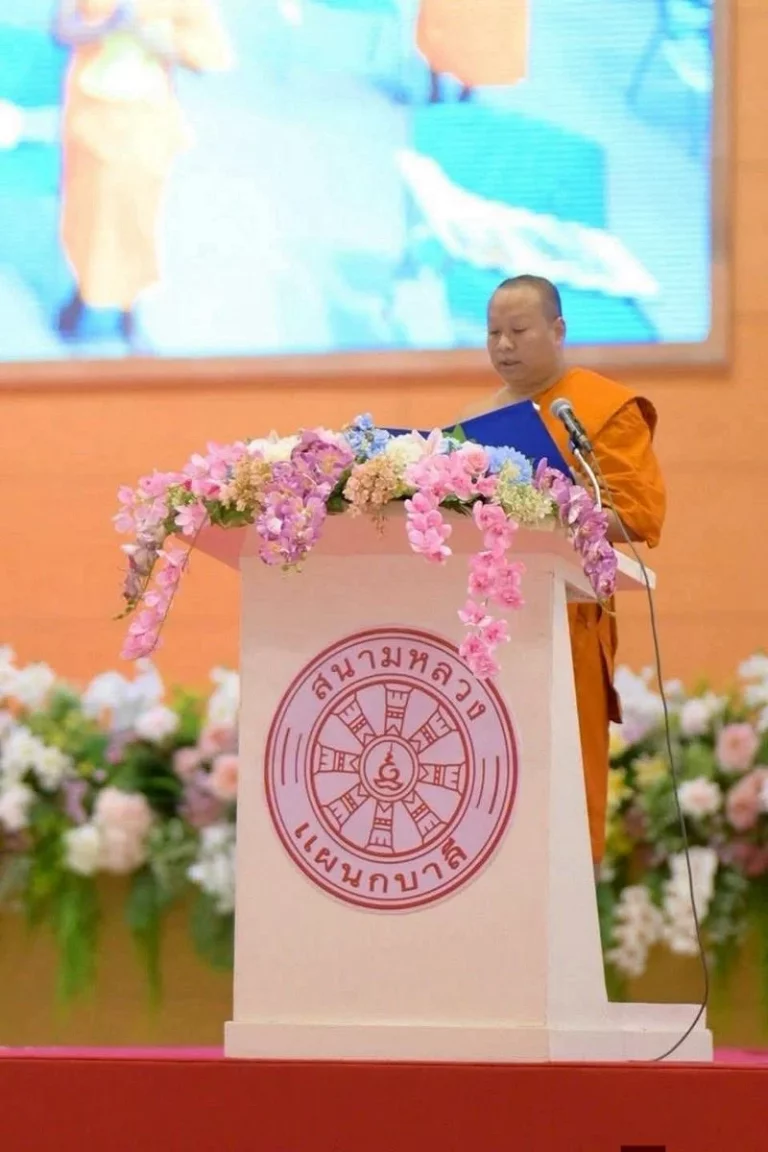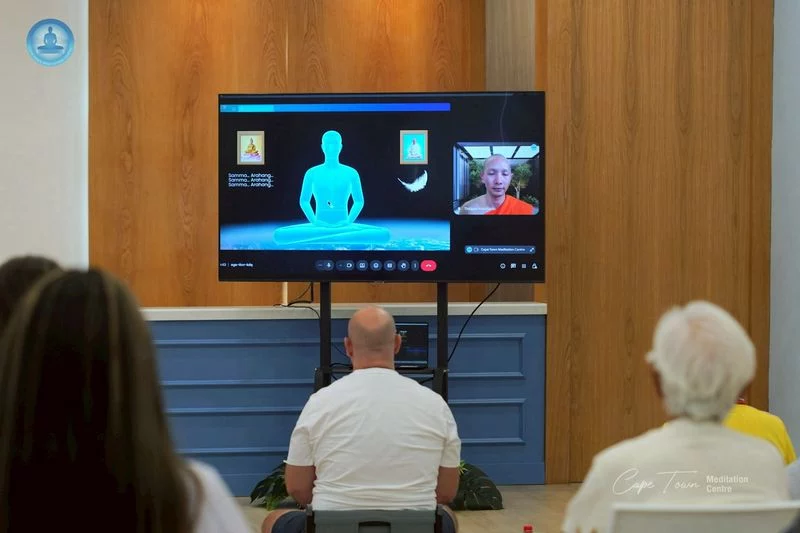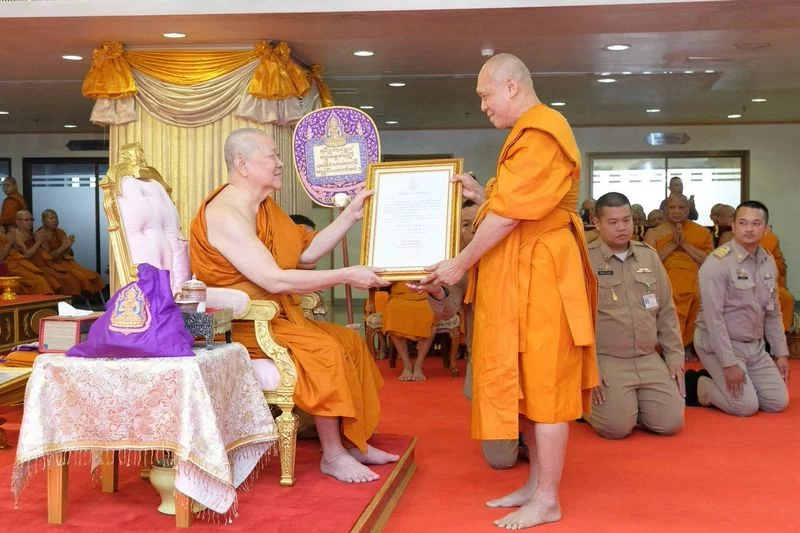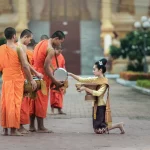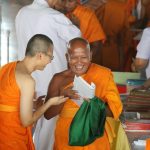The final day of Buddhist Lent falls on the 15th day of the 11th waxing moon. This day marks the end of the three months Rains-retreat known as ‘Buddhist Lent’ in which monks had earnestly dedicated themselves to the study of Buddhist scriptures and meditation practice. The Tipitaka mentions this as the day the Buddha, on His seventh Buddhist Lent, returned to Earth from His three-month stay in Tavatimsa Heaven (second level of heaven) where He preached the Higher Doctrine to His mother and other celestial beings. His mother who passed away seven days after giving birth to Prince Siddhattha would descend from her residence in Dusita Heaven (fourth level of heaven) to have an audience with the Buddha.
The end of Buddhist Lent day signifies the final night monks must remain in the same temple or dwelling they’ve stayed throughout the past three months. After this day, monks are permitted to travel and to stay at any other suitable location.
The end of Buddhist Lent day, also called “Maha Pavarana Day,” happens to be a Buddhist holy day where the practice of Pavarana, or making resolutions, is performed. This practice allows fellow monks the opportunity to approach one another and atone for an offense he may have committed during the Rains-retreat. The day is considered one of the holiest days for lay Buddhists as well. On this day, they traditionally attend the temple to offer donations, observe the moral disciplines, and listen to Dhamma lecture. In addition, an alms-giving ceremony called “Tak Bat Thevo” is conducted on this day.
The importance of the end of Buddhist Lent day:
- It marks the final day of the rains retreat, after which monks are allowed to travel or to reside at another location.
- It provides monks the wonderful opportunity to share their experience and teachings of the Buddha that they have acquired to the lay community.
- On this day, the Buddha instituted a practice called Pavarana or making resolutions as a way for fellow monks the chance to offer advice or recommendation to one another. This was a great occasion for His disciples to purify themselves, unite, and demonstrate respect for one another.
- The practice of Pavarana also gives lay Buddhists a chance to seek advice and guidance from fellow Buddhists in order to improve and cultivate themselves to be better individuals.

